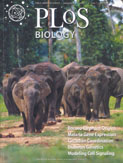Off campus
Painting

Helmut Gerth
"I think that I shall never see a poem lovely as a tree." Helmut Gerth would likely agree with American poet Joyce Kilmer's sentiments. Over the past two decades, Gerth has returned again and again to his muse — the Morgan Arboretum — for inspiration for his watercolour paintings.
On November 29 and 30, Gerth is holding a benefit exhibition and sale for the Macdonald Campus facility at his home.
"As emeritus director of the Morgan Arboretum, I felt that this was something I had an obligation to do," said Gerth.
Gerth will be showing over 100 of his artworks, framed and unframed. One third of the proceeds will go to the Arboretum.
Saturday, November 29 and Sunday, November 30 from 10 am to 4 pm, 87 Pointe-Claire Avenue, Pointe-Claire. Information: (514) 695-7477.
Grazing

It's the logo that says it all: the Mister Steer bull's head, glaring out at passersby on Ste. Catherine Street. Not a place of subtlety, this. Considered by some to be the best burger in Montreal, the Steerburger is more than meat on a bun: it is a perfectly grilled beef patty so thick as to be almost spherical, served with a side of Suzy Q fries. These are cut in such a way that they resemble golden fried spaghetti more than anything derived from a potato.
1198 Ste. Catherine West, 866-3233.
Just another new journal?
The just-launched Public Library of Science Biology journal has groundbreaking possibilities, and McGill should get on board, says Trenholme Director of Libraries Frances Groen.

In an article published in the McGill Reporter (February 10, 2000), I described the changing nature of scholarly communication, especially in scientific journal literature. The occasion was the funding provided under the Canadian Foundation for Innovation for the Canadian National Site Licensing Project (CNSLP) being implemented at McGill and at more than 60 other colleges and universities across Canada. This national initiative provides access to thousands of electronic journals, particularly in the area of science, technology and medicine. During the three years since CNSLP was implemented, the McGill scholarly community has benefitted significantly from improved access to scientific journal literature. When the "proof of concept" grant ended in the spring of 2003, the library assumed full financial responsibility. Costs increased from approximately $200,000 annually to $1.2 million.
In my earlier article, the CNSLP was referred to as a mid-term strategy. It helped libraries continue to subscribe to very expensive journals purchased en bloc from large commercial publishers. In doing so, it sustained a model of scholarly communication that was evolving from print to electronic form, but at a very high cost: $70 million over three years. Researchers and governments are beginning to question the sustainability of the costs of the present system of scholarly communication, and some are claiming that the system is deeply flawed. But does it really need fixing? The creation, reviewing and publishing of scientific literature is working, and, many researchers would agree that the system is viable. However, from the point of view of many existing agencies — from the U.S. National Institutes of Health to the Open Society Institute — the system has become dysfunctional. Journals are rising in price well beyond reasonable increases in the costs of publishing. These journals are sold in bundles that shift control of access, choice and price from the academy to commercial publishers. This marketing strategy, known as the Big Deal, offers the entire output of a publisher at a fixed price, usually with an inducement to buy only the electronic version.
As the dysfunctionality of the present model of scholarly publishing becomes increasingly evident, worldwide telecommunication reliability and leadership from the scientific research and scholarly community is combining to support a new model of communicating research results: Open Access. Open Access was formalized and advanced by the Budapest Open Access Initiative (December 2001, www.openarchives.org). In 2002, the Association of Research Libraries endorsed the Budapest Initiative, as did the Canadian Association of Research Libraries and the Conférence des recteurs et des principaux des universités du Québec. SPARC, the Scholarly Publishing and Academic Resources Coalition, of which McGill is a charter member, actively supports timely, sustainable and reliable open access, particularly in relation to federally funded research. Open Access is access without fee on the public internet to works and data that are currently given away to publishers by researchers and scholars with no expectation of financial payment, and is designed to ensure broad availability and use of information that is fundamental to the well-being of society.
Of course, the new model of scholarly communication is not really free. Costs are shifted to the author and, commercial profit is eliminated. Why would scientists be willing to experiment with this model, especially if they take on a cost of publishing? A number of private and public agencies are sufficiently concerned about the dysfunctional commercial model that they are underwriting these costs. In September 2003, the Howard Hughes Medical Institute agreed to support up to $3,000 for open access fees from grants to individual authors. The Wellcome Trust has issued a statement in support of Open Access, and states that contingency funds can be used for Open Access (October, 2003). It is my strong belief that McGill should be ready to support publishing in high quality, peer reviewed journals that choose to function as Open Access journals. Funds repatriated from commercial publishers could help to subsidize these costs.
In October 2003, the Public Library of Science published the first issue of PLoS Biology (www.plos.org). PLoS Biology, and other journals to follow will be Open Access publications. Content will be immediately and freely available to anyone to download, print, distribute and read, without cost or restriction. The high standards of the best scientific literature — rigorous peer review, editorial oversight, quality production and distinctive journal identity — are being maintained. In a message from the journal founders in the first issue, Patrick O. Brown, Michael B. Eisen, and Harold E. Varmus write:
"With all that is at stake in the choice of a journal in which to publish — career advancement, grant support, attracting good students and fellows — scientists who believe in the principle of Open Access and wish to support it are confronted with a difficult dilemma. We applaud the courage and pioneering spirit of the authors who have chosen to send to a fledgling journal the outstanding articles you will read in the premiere issues of PLoS Biology."
"Just another new journal?" Yes and no. The economic foundation on which the high profits of commercial publishers has been built is beginning to crack and this new, high-quality journal is a stunning symbol of the determination of scientists to repatriate control of the process of publishing their research results.
